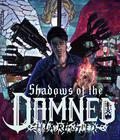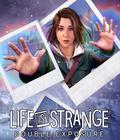I saw The Endless Mission at last year's E3, at the same time that its developer E-Line Media was showing off Beyond Blue, but I didn't end up writing about it. At the time, it didn't feel like a game, or even a useful program, so much as a loose bundle of ideas. The plan, more or less, was to make learning the Unity engine fun by packaging a simplified version thereof into a weird genre-breaker of an interactive experience.
A year later, The Endless Mission is a lot further along and has more of a shape to it. The real surprise is that it's picked up one of the more metafictional stories I've ever seen in a game, with an all-star list of voice actors. It's still basically an extended Unity tutorial, built using Unity, but it's now with the conceit where you can use that knowledge in the service of breaking a malevolent AI's grip on the inhabitants of a virtual world.
You're in the far future in the Endless Mission story, in a society where humans and AIs frequently coexist. You're a programmer in a virtual environment, which is meant to teach you how to use this new technology for the first time by interacting with the AI-driven inhabitants of several different worlds.
In the course of so doing, you descend into the "underbelly" of the virtual environment and discover a strange source of data corruption inside. That corruption is causing elements of the virtual worlds to leak into each other, such as the undead units from a real-time strategy game suddenly appearing in several other worlds and genres.
Your job is to move into each of the worlds and clean up the corruption, with the help of the locals, each of whom is a full artificial intelligence that lives within the virtual space. Those characters are voiced by, among others, Sara Amini, Laura Bailey, Courtenay Taylor, and as the unnamed adversary responsible for the corruption, Jennifer Hale. (E-Line Media initially set out looking for someone like Hale because she's really good at voicing evil characters and ended up getting Hale herself.)
As one of the human administrators of the environment, you have access to the creation tools, which you can use to fight, solve problems, and manipulate items around you, much in the same way that another game might give you telekinesis or combat magic.
It is, to put it directly, a game about learning how to make games in order to defend games from other games by fixing game-breaking bugs, using game creation tools.
Specifically, everything around you in the virtual worlds can be hacked and modded. You have access in the field to various lenses that work like an augmented reality overlay, so you can inspect an object and change its parameters on the fly. An example given in the demo was changing a gate's positioning in the world in order to rotate it shut. You also gradually get several "tweaks," which let you grow, shrink, injure, or charm enemy units in-game at the touch of a button. Your ability to mess with the mathematics of the virtual space is effectively equivalent to a functional magic system, which gives you the tools to succeed.
As you play through the story mode, the hope by E-Line's development team is that you'll become comfortable enough with the simplified version of Unity that's present in the game that you'll be able to move up to an actual version of Unity yourself. The Endless Mission already contains a construction set that you can use to modify the game's backgrounds, models, physics, rules, and so on, in order to slap together your own content using The Endless Mission's assets.
The Endless Mission is currently planned to go into a closed beta in a few weeks, with an open beta coming shortly after that, and eventually, a release via Steam Early Access. At release, it'll feature three worlds — a real-time strategy game, a platformer, and a kart racer — with the first "chunk" of its story mode.
I wasn't looking forward to seeing The Endless Mission again, if I'm being honest, because the last time I saw it, it felt a little like the developers had dumped a bucket of tools on the table in front of me and tried to get me to see the shape of what they intended to create with them. Now, though, it's a lot easier to wrap my head around what they're trying to do.
It reminds me of a couple of the weird genre-busting tabletop games of the '90s, like TORG or Rifts, but used in the service of a story where basic Unity knowledge essentially becomes magic. If nothing else, you can pick up The Endless Mission for the express purpose of gaining entry-level game design skills and then using them to beat up zombies, and I have to respect that.
More articles about The Endless Mission










 The Endless Mission is a sandbox-style creation game that takes you on a hero’s journey through a rich narrative world where you develop the power and opportunity to craft games and experiences of your own - all while challenging forces larger than yourself.
The Endless Mission is a sandbox-style creation game that takes you on a hero’s journey through a rich narrative world where you develop the power and opportunity to craft games and experiences of your own - all while challenging forces larger than yourself.




















